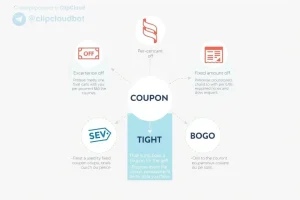Understanding Mortgage Interest Rates
Demystifying mortgage interest rates: Get expert insights and navigate the complexities of home loans. Find the best rates and make informed decisions for your dream home. Unlock your financial future today!
Navigating the world of mortgages can feel overwhelming. The sheer number of lenders, loan types, and fluctuating interest rates can be daunting. Understanding the current interest rate is a crucial first step in the home-buying process. This comprehensive guide will explore the complexities of mortgage interest rates, offering insights to help you make informed decisions;
Mortgage interest rates represent the cost of borrowing money to purchase a home. They’re expressed as a percentage of the loan amount and are typically calculated annually. These rates are not static; they fluctuate constantly based on various economic factors. Understanding these factors is key to securing the most favorable rate possible.
Factors Influencing Mortgage Interest Rates
Several interconnected factors influence the prevailing mortgage interest rates. The Federal Reserve’s monetary policy plays a significant role. When the Fed raises interest rates, borrowing becomes more expensive, leading to higher mortgage rates. Conversely, rate cuts generally result in lower mortgage rates. Inflation also exerts considerable pressure. High inflation often prompts the Fed to increase rates, impacting mortgage costs. The overall economic health and investor confidence within the financial markets are other significant factors that contribute to the volatility of interest rates. A robust economy usually supports lower rates, while economic uncertainty can drive them upward. Supply and demand dynamics within the mortgage market itself can also significantly affect the rates you encounter. A high demand for mortgages may push rates up, while lower demand could lead to more competitive rates.
Furthermore, your individual creditworthiness significantly impacts the interest rate you qualify for. Lenders assess your credit score, debt-to-income ratio, and overall financial stability to determine your risk profile. A higher credit score typically translates to a lower interest rate, reflecting a lower perceived risk for the lender. The type of mortgage you choose also plays a crucial role. Fixed-rate mortgages offer consistent monthly payments, but may have slightly higher initial rates compared to adjustable-rate mortgages (ARMs). ARMs feature rates that adjust periodically based on market conditions, potentially leading to fluctuating monthly payments. The loan term, also known as the amortization period, impacts the monthly payments and overall interest paid over the life of the loan. A longer term means lower monthly payments but higher total interest paid, while a shorter term offers the opposite. The down payment you make influences the interest rate. A larger down payment usually translates to a lower interest rate because it signifies reduced risk for the lender.
Finding the Best Mortgage Interest Rate
Securing a competitive mortgage interest rate requires diligent research and strategic planning. Start by comparing rates from multiple lenders. Don’t rely solely on online tools; speak directly with loan officers to understand the nuances of each offer. Consider your financial circumstances carefully. A higher credit score, a lower debt-to-income ratio, and a substantial down payment can significantly improve your chances of getting a favorable rate. Shop around for the best mortgage terms and consider refinancing if interest rates fall significantly after you’ve secured your loan. Be aware of all the associated fees and costs beyond the interest rate. Points, closing costs, and other fees can add up and should be factored into your overall decision. Remember, securing the lowest interest rate isn’t always the primary goal. The best mortgage is the one that aligns with your financial situation and long-term goals. Consider the total cost of the loan, including interest and fees, rather than solely focusing on the interest rate itself.
Tips for Securing a Favorable Rate
- Improve your credit score: A higher credit score significantly impacts the interest rate offered.
- Reduce your debt: Lowering your debt-to-income ratio improves your chances of securing a favorable rate.
- Make a larger down payment: A larger down payment often translates to a lower interest rate.
- Shop around for lenders: Comparing rates from multiple lenders is crucial to finding the best deal.
- Consider different loan types: Explore various mortgage options to find the one that best suits your needs.
Current Market Conditions and Interest Rate Predictions
Predicting future interest rates is inherently complex and speculative. However, understanding current market trends provides valuable context. Keep abreast of economic indicators such as inflation, unemployment rates, and the Federal Reserve’s policy decisions. These indicators often provide clues about the direction of interest rates. Consult with financial advisors and economic experts to gain deeper insights. They can offer more informed perspectives on the likely trajectory of mortgage rates, considering various economic variables and potential scenarios. Remember that any prediction comes with inherent uncertainty, and unforeseen events can significantly alter the outlook. Staying informed, however, empowers you to make better decisions.
Understanding Economic Indicators
Several key economic indicators influence mortgage interest rates. Inflation, measured by indices like the Consumer Price Index (CPI), reflects the rate at which prices for goods and services are rising. High inflation generally leads to higher interest rates as central banks attempt to curb price increases. Unemployment rates, indicating the percentage of the workforce that is unemployed, provide insights into the overall health of the economy. Low unemployment typically suggests a strong economy, which can sometimes contribute to higher interest rates. The Federal Funds Rate, set by the Federal Reserve, represents the target rate for overnight lending between banks. This rate serves as a benchmark for other interest rates, including mortgage rates, meaning changes in the Federal Funds Rate often affect mortgage costs. Gross Domestic Product (GDP) growth indicates the rate at which a country’s economy is expanding. Strong GDP growth can sometimes contribute to higher interest rates due to increased demand for borrowing. By monitoring these indicators, you can gain a better understanding of the broader economic climate and its potential impact on mortgage rates.
Long-Term Considerations and Refinancing
Choosing a mortgage is a long-term commitment. Careful consideration of your financial goals and projections is paramount. Assess your anticipated income growth, potential changes in your lifestyle, and your tolerance for risk. Consider the total cost of the loan over its lifespan, not just the initial interest rate. Also, remember that refinancing can be a viable option if interest rates fall significantly after you’ve secured your loan. Refinancing involves obtaining a new mortgage to replace your existing one, often at a lower interest rate. However, refinancing entails its own costs and requires careful evaluation. Explore all the options available to you, carefully weigh the pros and cons, and seek professional advice if needed. Thorough planning helps minimize financial stress and maximizes long-term financial benefits.
- Assess your long-term financial goals: Consider your income projections, lifestyle changes, and risk tolerance.
- Factor in potential refinancing: Explore the possibility of refinancing if interest rates fall.
- Calculate the total cost of the loan: Consider the overall cost over the loan’s lifespan, not just the initial rate.
- Seek professional advice: Consult a financial advisor for personalized guidance.







